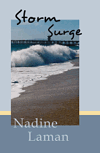No, I'm not ready for beta readers. I've goofed off most of the summer. I guess there is a first time for everything.
Recently I was reminded again how lucky I am to have the beta readers I have. It took a bit of prodding, but they eventually understood that telling me they love every word wasn't helpful. I do want to know what they like and what works - so I don't change those parts, because after a couple of rewrites it all looks like crap to me.
What really helps is when they point out problems like they got lost in the dialogue or there was no transition to a location change, which was confusing.
Sometimes they will say, find another word (you're over using this one), this sentence needs changing (it doesn't make sense), or this paragraph is out of place. Usually when a sentence needs to be rewritten, there is no fixing it, it needs DELETED.
I'm not afraid of the delete button. I have been known to cut 5,000 words in a weekend marathon read.
The thing is, no one's first or second draft is ready to shop. The first few drafts are to bang out the story - from beginning to end. If an ms is shopped before its time, that lit agent or publisher has been lost. Once they reject an ms, they don't want it back - unless they say the story has merit, but rewrites are needed.
Usually I won't read for anyone who won't make changes or take suggestions. Why bother to read for them? It is simply a waste of time. All they want is to be told it is wonderful and frankly that is their mom's job, not mine.
Most of the time, when someone calls their ms their baby, they aren't ready for useful beta reads. Let's face it, we think our kids are wonderful. We aren't supposed to be objective and detached about our kids, but we are supposed to be objective about our mss during the rewrite stage.
So if someone reads for me and says it is wonderful, I either figure they love me very much and can't see the trees for the forest or they have no clue about writing. Same goes for crit groups when no useful suggestions are given or taken. It is a waste of time, unless it is serving the purpose of a feel good session - but it is also a set up for lots of rejection letters from literary agents.
It is a good mix to have reading maniacs and writers (two different groups) on your beta reader list. Readers can point out what works and doesn't work for the general public. Writers can point out craft tool errors. Friends help friends, not whitewash the truth about their ms.
So there is that, find yourself really good beta readers.
Friday, October 2, 2009
Subscribe to:
Post Comments (Atom)

 When Paul Fenton stops for breakfast in a small town, he gets more than he bargained for in the process.
When Paul Fenton stops for breakfast in a small town, he gets more than he bargained for in the process.
 When two-hundred-year-old human remains are discovered on one of Neptune's moons, Earth's history falls into question.
When two-hundred-year-old human remains are discovered on one of Neptune's moons, Earth's history falls into question.
 Emily's husband persuades her to try thalidomide to ease her symptoms as she is unaware of the devastating effects.
Emily's husband persuades her to try thalidomide to ease her symptoms as she is unaware of the devastating effects.
 Who is the women's shelter bomber? Melissa Ryan suspects that her husband knows.
Who is the women's shelter bomber? Melissa Ryan suspects that her husband knows.
 Further developments with the Wilder family.
Further developments with the Wilder family.
 A hidden past shakes the O'Donovan family to its core
A hidden past shakes the O'Donovan family to its core
 A swirl of emotion and choice, set in Cape Town, South Africa
A swirl of emotion and choice, set in Cape Town, South Africa
 Love is a constant, but it comes at a price.
Love is a constant, but it comes at a price.
 When the road ahead is unclear, sometimes you have to rely on trust.
When the road ahead is unclear, sometimes you have to rely on trust.
 The struggle between good and evil is ages old. It gets all the more complicated when the good guys aren't all good and the bad guys have redeeming qualities.
The struggle between good and evil is ages old. It gets all the more complicated when the good guys aren't all good and the bad guys have redeeming qualities.
 Story of a land mothering two races of people – the light-skinned and the dark-skinned.
Story of a land mothering two races of people – the light-skinned and the dark-skinned.
 A gifted Ukrainian ballerina comes into possession of a mysteriously coded address book.
A gifted Ukrainian ballerina comes into possession of a mysteriously coded address book.
 Six passengers' lives change for better or worse after they arrive in Honiton.
Six passengers' lives change for better or worse after they arrive in Honiton.
 Resilience and love in a harsh and unforgiving age
Resilience and love in a harsh and unforgiving age
 Kathryn's Beach
Kathryn's Beach High Tide
High Tide Storm Surge
Storm Surge
Fabulous piece of advice! I'll have to find a few friends in my circle who won't gush just because I wrote something. Or maybe I'll hand them a ms and say "pretend you don't know me...I need honest feedback!"
ReplyDeleteI hope you have a fabulous weekend Nadine!
It takes a while for non-writers to work up to feeling comfortable mentioning things. Plus it is very important to learn, as a writer, not to argue or defend each point back to them. It takes a lot of work on their part, so it is important to show your appreciation for their work.
ReplyDeleteI didn't make it clear that when they point to something, they may have wrong what is wrong with it, but it stood out for a reason and it is up to the writer to look closely at that point - just to double check it.
1. On my own decision I cut 20,000 from my first novel.
ReplyDelete2. Having someone to read your work who is brave enough to criticise. Positive criticism makes the author look at the writing and make it better. Where do you find a beta reader though who is going to be bothered to read your novel and is good enough at language to make the necessary corrections?
Glyn,
ReplyDeleteUsually writers trade beta reading and for me, I have reading friends who give me good imput. The more receptive I am, the more willing people are to give their honest opinion. It is my responsibility to assess the comments objectively.
In trade, I dedicate the books to them and give them an autographed copy as a thank you gift.
Yes, for my novel 'To The End Of Love' a friend who had beta read it had his name in acknowledgements and I gave him an autographed copy. He was particularly thrilled to have his name in a book! He and his wife did the same for a forthcoming novel and I will make sure they are there. He was a policeman I wouldn't say a literary genius but still found a lot of errors and after he'd gone over it his wife found more. One thing he told me was that he found it confusing as to who was speaking. I just thought it was him being fussy; but as you pointed out not enough 'dialogue tags'.
ReplyDeleteWell the 'rule' is to have very few dialogue tags, but if more than two people are involved in the conversation, that rule makes absolutely no sense. I throw away books where I have to stop the story to count down to figure out who said what...and some of the tossed books were from big publishers.
ReplyDeleteThe whole purpose of writing is to convey the story to a reader. If that doesn't occur, then what's the point?
I agree. After your comments and the friend saying he was confused I looked more closely at the book I was reading at the time by Henning Mankell. He is a superb modern author and his books have dialogue tags even where its fairly obvious who is speaking. It doesn't distract from the text or look twee; it makes the whole thing clear!
ReplyDeleteAs a writer, you want to do what you can to make the read seamless; uninterrupted. You want the reader immersed into the story in a way they can dispense with reality and your story becomes their reality. You don't want them to work at reading your book, you want them to hurry back to it every chance they get. It isn't just dialogue tags, you want to make sure that any flash backs fit, that they don't disrupt the flow of the story, that you don't stop the story to explain things. You don't want the reader talking to you in a negative way. You want them to forget you exist, but feel your characters are real.
ReplyDeleteI have a lot of books about writing and most of them are crap. One very good and basic book is The 38 Most Common Fiction Writing Mistakes (and how to avoid them) by Jack M. Bickham. See if you can find it.